'A little bit' of progress in meeting with DPRK
Updated: 2012-02-25 08:20
By Zhou Wa (China Daily)
|
|||||||||
First time sides have talked since death of Pyongyang's top leader
BEIJING - Some progress was made as Washington and Pyongyang wrapped up their first talks since the death of Democratic People's Republic of Korea leader Kim Jong-il.
"I think we made a little bit of progress. I think what we have to do is to evaluate it," Glyn Davies, the US special representative on DPRK policy, said on Friday without elaborating.
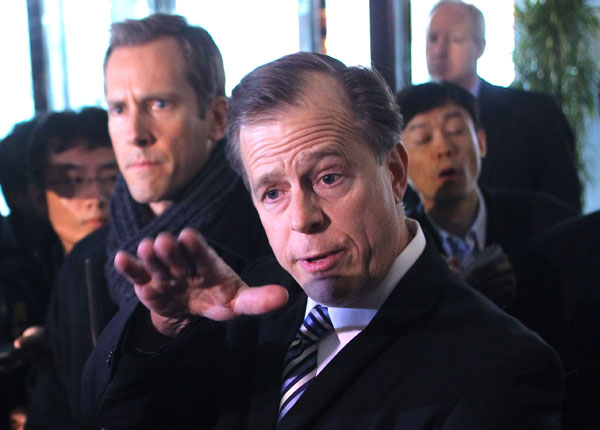 |
|
Glyn Davies, US special representative on the Democratic People's Republic of Korea policy, speaks to the media in Beijing on Friday. [Photo by Zou Hong / China Daily] |
But he said that Pyongyang will not change its stance over the nuclear issue.
He said the talks "ranged over all the issues". "I wouldn't point to any dramatic differences in how they presented their views, in how they dealt with the points that we made," Davies said.
"They're very much the same men and women that we have been dealing with in the past," Davies said after the end of the meetings with Pyongyang's delegation led by First Deputy Foreign Minister Kim Kye-gwan.
No "breakthrough" was made, the US envoy said, adding that diplomacy needed "step by step progress".
He reiterated that he thinks it positive that the DPRK was willing to sit down with the US and go over all of these issues in some depth relatively soon after the death of its leader Kim Jong-il.
The talks in Beijing, the third round since July, marked the first meeting between the US and the DPRK since the death of Kim Jong-il in December.
Washington attempted to encourage the DPRK to return to the Six-Party Talks, Davies said after his arrival in Beijing on Wednesday, while Pyongyang is seeking food aid from the US.
The DPRK agreed to reduce its nuclear activities under an aid-for-denuclearization agreement reached in 2005 at the Six-Party Talks, which were launched in 2003 and involve the DPRK, the Republic of Korea, the US, China, Japan and Russia.
But Pyongyang quit the talks in 2009 in response to the UN Security Council's condemnation of the country's rocket launch, which was treated as saber rattling by the West.
Beijing attached great importance to the high-level talks between the DPRK and the US and hoped the talks could bring positive results and create conditions for the resumption of the Six-Party Talks, Foreign Ministry spokesman Hong Lei said at a regular news conference on Friday.
Experts said the US-DPRK talks are positive signs, and they urged the US to pay attention to Pyongyang's concern about security.
"No matter whether the talks yielded results, they themselves are meaningful," Wang Junsheng, an expert on Asia-Pacific studies with the Chinese Academy of Social Sciences, said on Friday.
But he said the nuclear issues on the Korean Peninsula cannot be solved soon because Pyongyang's security concerns have not been tackled.
Wang urged the US to address the DPRK's concerns.
Sun Ru, an expert on world political studies with China Institutes of Contemporary International Relations, said the US will insist on denuclearizing the DPRK before Washington normalizes its ties with Pyongyang.
"The key to solving the problems on the peninsula is mutual trust between the DPRK and the US," said Alexander Vorontsov, an expert on DPRK studies with the Russian Academy of Sciences.
"If there is mutual trust, there will be progress," he said.
Wu Dawei, China's special representative on Korean Peninsula affairs, met Davies on Friday, and the US envoy briefed him about the results of the talks with Pyongyang.
Davies said he would later fly to Seoul and Tokyo over the weekend to inform officials about results of the talks in Beijing.
Related Stories
US-DPRK talks in Beijing 'substantive' 2012-02-23 22:13
DPRK denounces planned Seoul nuclear summit 2012-02-23 13:30
US open to diplomacy with DPRK leaders 2012-02-02 07:53
DPRK's ruling party to convene conference 2012-02-20 09:58
ROK to press DPRK for regular family reunion 2012-02-06 16:18
Defense officials: DPRK leadership 'stable' 2012-01-31 13:48
Hot Topics
Wu Ying, iPad, Jeremy Lin, Valentine's Day, Real Name, Whitney Houston, Syria,Iranian issue, Sanyan tourism, Giving birth in Hong Kong, Cadmium spill, housing policy
Editor's Picks
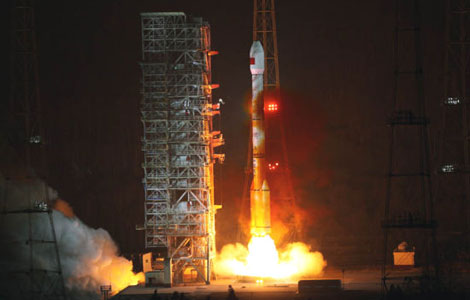
|
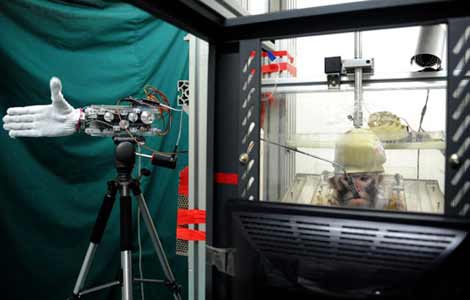
|
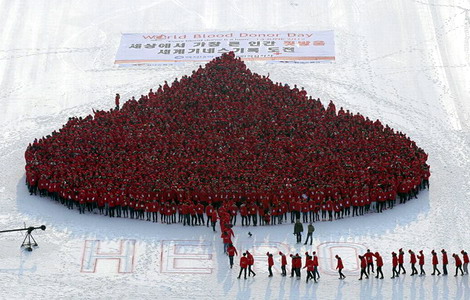
|
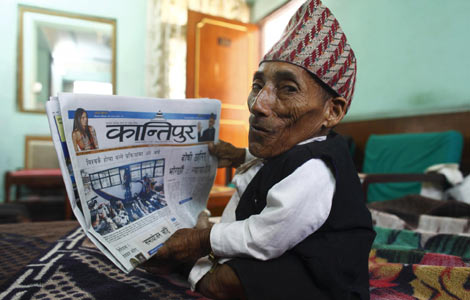
|
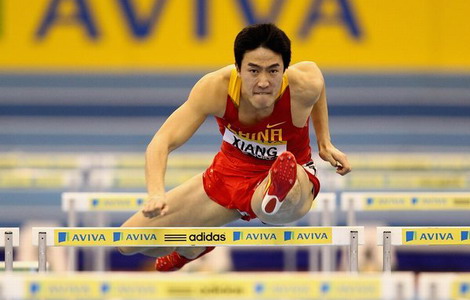
|

|






